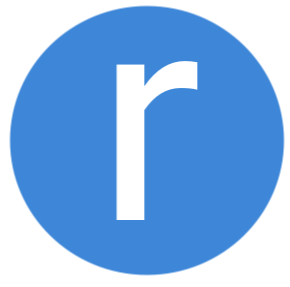Today we are very excited to announce a broader vision for what we are doing at Roomify.
Roomify started out with the aim of addressing the booking and reservation problem within the hospitality industry - and that remains a key goal for us. Some time ago, however, we had the opportunity to take a break and look at the bigger picture. We evaluated what is at the core of the open source tools we are building and how people are using them outside of the hospitality industry.
From the very first day we released Rooms we've had people coming to us with ideas, ways it could be used that went beyond what we had built. Whether it was booking conference rooms, sharing equipment, planning tours or creating AirBnB clones (yes that is a real thing!). People saw the potential to use Rooms in all sorts of domains, not just hospitality. The power of open source, the familiarity with Drupal and the flexibility of the underlying tools meant that people wanted to tinker.
What emerged is a realization that what we are really building are platforms that allow people to connect and share resources. In other words, a sharing economy platform. The sharing economy and the collaborative commons are redefining how we operate as a society. It is, quite simply, a better way of doing things. The collaborative commons provide a framework that better respects people's individuality while fostering a more rational use of resources. Giving people access to open (and free) platforms that they can use to implement their ideas accelerates adoption. This open access also safeguards against sharing platforms simply becoming another closed ecosystem, controlled by a few organizations.
With our hospitality-specific solutions having reached sufficient maturity, we decided to take the challenge head-on and build a sharing economy platform on top of Drupal. We are very excited about the possibilities this opens up. Drupal provides a great framework to build on, and in a way, we view it as taking Drupal closer to its original slogan of "community plumbing". Drupal is a very mature platform and the improvements coming as part of Drupal 8, both in terms of underlying architecture and its capability to interface with other services, means that it can serve as a long-term solution.
Here is the technology stack that makes it all possible.
The core of the platform is Drupal, offering content management and user management. On top of that, Drupal Commerce provides the necessary commerce and transaction management components. The management of bookings and resources is orchestrated by a module we are announcing today called . BAT provides booking and availability management tools. Finally, applications can be built on top of BAT to deal with the needs of a specific niche.
The first application we are building - because of the sheer number of requests we have received - is Rooms.EDU. This is a platform that allows university institutions to manage spaces and/or equipment within the university. Departments, research groups, or individuals can describe their availability and they can be booked for a few hours or a few days.
We are excited about the possibilities this opens up for sharing economy solutions + Drupal. BAT aims to become a generic booking and availability management engine. The combination of BAT with the other Drupal tools makes it a really flexible platform that people can use to implement their own ideas. If you are interested in BAT or Rooms.EDU and would like to participate in its development get in touch.
Image credits: BAT logo: / Commerce logo:
